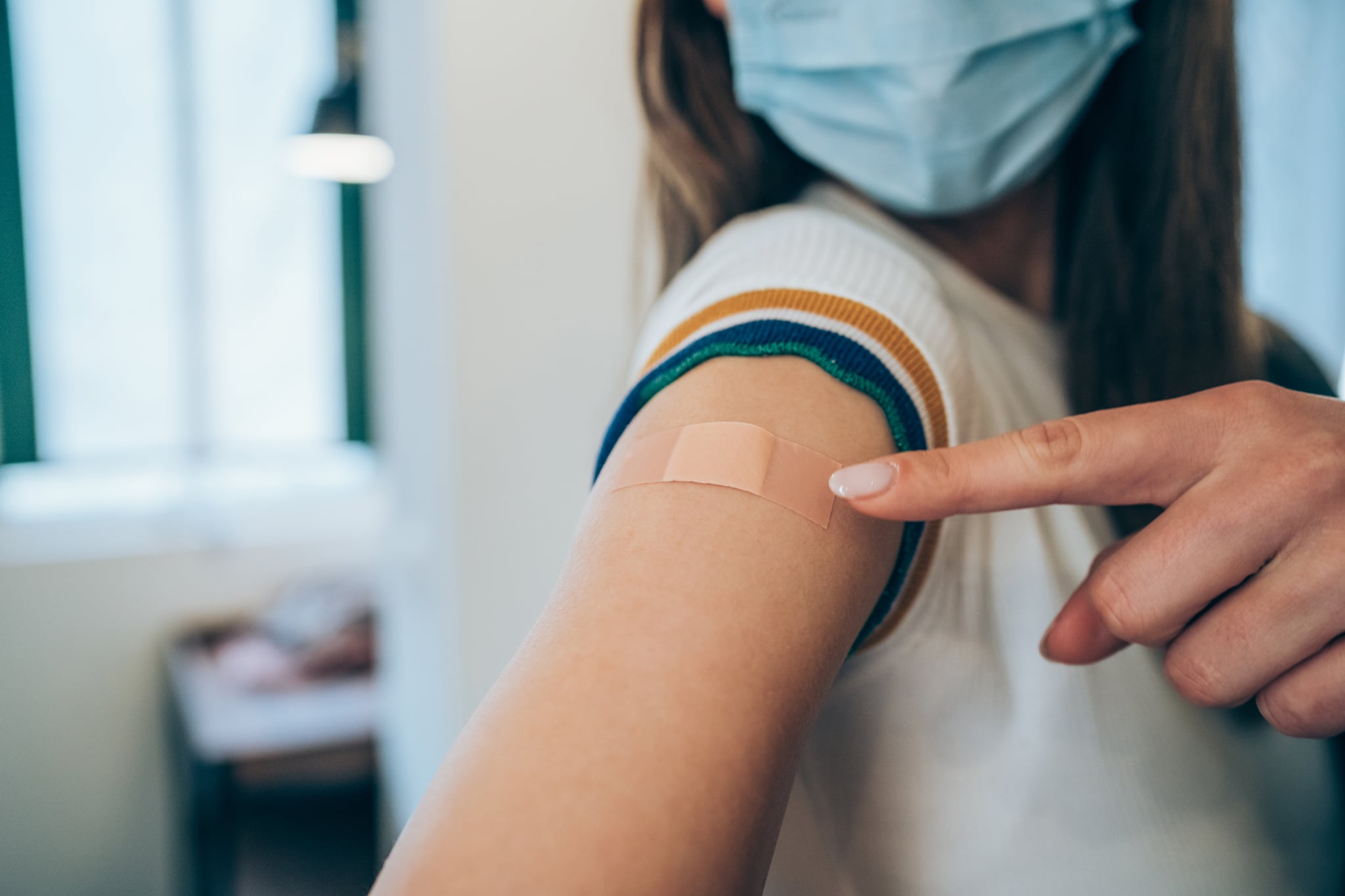Products You May Like
I believe in science. When the COVID-19 pandemic hit in early 2020, I told myself I would get vaccinated as soon a shot was approved and available. I did just that in March 2021 when I got the first dose of the Pfizer vaccine, followed by the second dose three weeks later. As the science evolves and we learn more and more about the novel coronavirus, it only makes sense that the vaccines would be studied and adjusted to improve efficacy and slow the spread. When the FDA approved the Pfizer booster dose, I was once again ready to get the shot to not only lessen my chances of getting incredibly sick from COVID-19, but keep my loved ones safer as well.
A booster is often necessary for vaccinations to continue to be effective at preventing the spread of disease. As the COVID vaccines were rolled out over the past several months, there had been discussion of a COVID-19 booster eventually entering the market, and Pfizer was the first to reach that point. (Johnson & Johnson and Moderna are likely to follow.) Pfizer’s booster is designed to be administered six months after the second shot and is currently recommended for public-facing workers, people over the age of 65, and those with underlying conditions.
I got the booster shot on a dreary Monday morning at a local drugstore, and from booking the appointment to getting the actual shot, every part of the process was easier than getting my initial vaccination. But what many people are wondering is if there’s a reaction to this dose, and I was pleasantly surprised to find it was much more mild than I expected, given my immune system was already primed by the two-shot series.
When I got the first Pfizer shot, my arm hurt for a little bit that first day, but it dissipated quickly, and I had no other symptoms. When I got the second shot, my arm hurt again, but the next day, I was extremely exhausted and slept for the entire day. I felt a little bit off — mostly just my stomach feeling uncomfortable — but it didn’t feel any worse than the exhaustion I’ve had with a cold. I didn’t experience any of the other symptoms that are relatively common (and perfectly normal) following vaccination, such as a headache or chills.
Upon getting the booster shot, I was prepared to feel the same way I did after my second dose. However, the only side effect I had was the arm pain.
Upon getting the booster shot, I was prepared to feel the same way I did after my second dose. However, the only side effect I had was the arm pain. That being said, the arm pain lasted much longer than with the other two doses. My arm started to hurt the evening I got the shot and continued to hurt for four days. The pain lessened with each passing day but still remained sore, and the soreness radiated through my whole arm. But while the initial pain occurred any time I moved my arm, it eventually died down to only being tender to the touch in the place where the needle was injected.
Beyond the arm pain, I didn’t experience any exhaustion like last time. I had a mild headache the day I got the shot and the day after, but because I get headaches so frequently, it’s difficult for me to justifiably tie that to the booster.
Hopefully my extremely mild reaction to the booster shot is encouraging to others waiting to get their own shots. Even if I would have been tired with an uncomfortable stomach with the booster, it would still be worth it to continue to protect myself and others from a potentially dangerous virus. My lack of reaction to the booster, though, just makes it that much more appealing.
